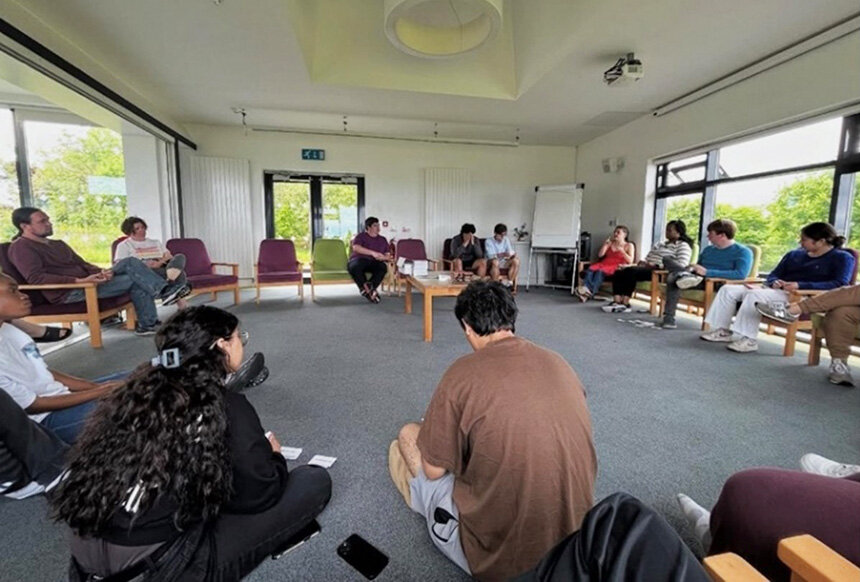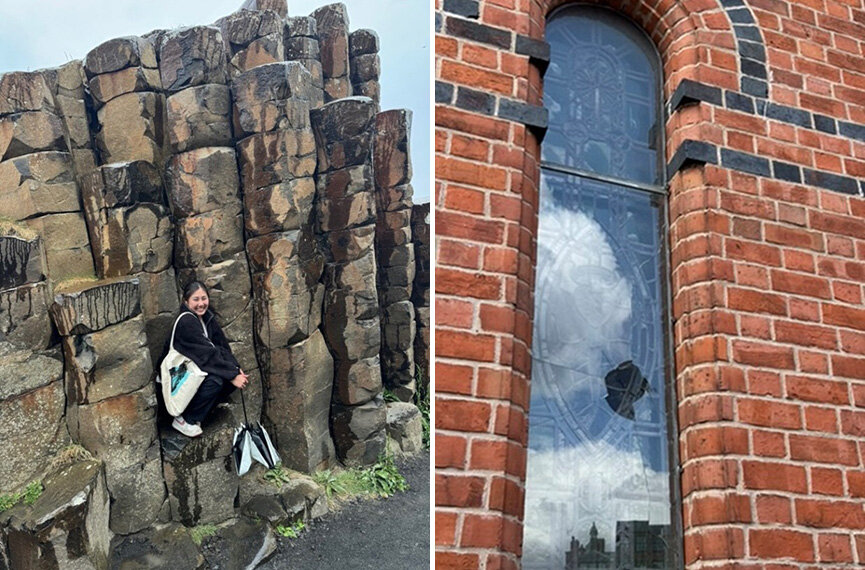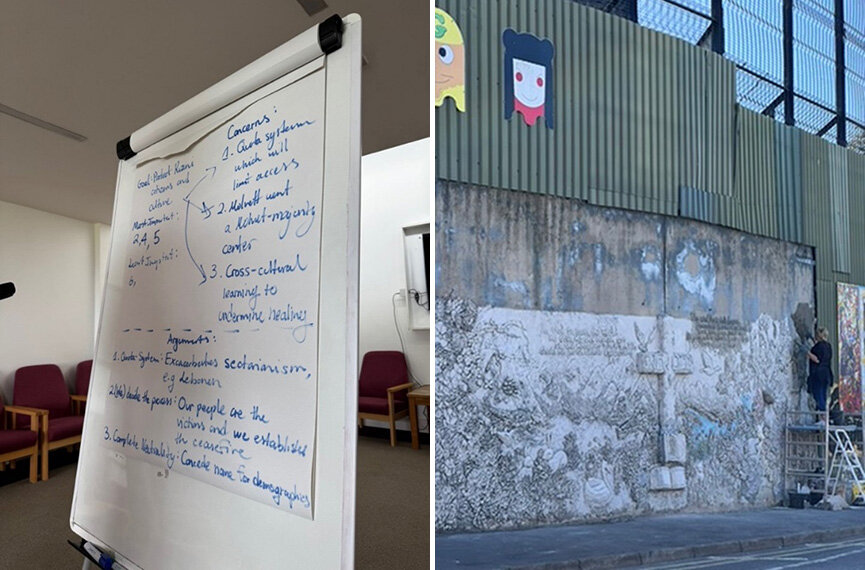NEWS
ICU Student Participated in the Leaders Across Borders 2025
Update: August 12, 2025
 All participants gather in a circle, sharing their thoughts and learnings.
All participants gather in a circle, sharing their thoughts and learnings.Aoi Aibara, a third-year student of ICU's College of Liberal Arts, participated in the Leaders Across Borders Workshop (LAB) which was held over a period of five days from May 20 to 27, 2025. Organized by Ohio Wesleyan University, a member of the Global Liberal Arts Alliance (GLAA), the LAB program focuses on issues regarding peace and reconciliation.
The workshop was held in Ballycastle, Northern Ireland at the Corrymeela Centre for Reconciliation. Corrymeela is a community which was founded in 1965 to aid individuals and communities suffering from violence and polarization due to the Northern Ireland conflict. It currently welcomes youth groups, school groups, and local organizations, and hosts regular workshops under the theme of peace and reconciliation.
24 students selected through nomination from the 30 colleges and universities that comprise GLAA, including ICU, participated in the workshop. Over the program of approximately two months, including pre- and post-workshop assignments, participants engaged in dialogue and discussion focused on the conflict in Northern Ireland that began in the late 1960s--particularly the "clash of identities"--as a case study, and deepened their understanding of leadership and peacebuilding.
【Student Comments】
I applied for this program to become a leader who can inspire others. The experience of organizing a fundraising campaign and struggling to gain genuine empathy from peers made me realize that conveying a message is not enough--I wanted to become someone who could move people's hearts and encourage them to take action. In today's increasingly diverse world, bringing those together to address social issues requires communication based on trust and dialogue--skills I believed this program would help me develop.
During the first three days in Belfast, we toured the city with local guides and learned about the lingering traces of the division. One striking example was the presence of gates between Protestant and Catholic neighborhoods that still close at night--tangible reminders of ongoing tensions rooted in the past. In the second half of the program, we stayed at Corrymeela, a retreat center dedicated to dialogue and reconciliation. There, we participated in workshops focused on the leadership necessary to overcome division. One particularly memorable activity involved a game using colored pencils, where participants were divided into two teams. Each team had to choose a color--red, blue, or green--and the score depended on how the colors matched with those chosen by the opposing team. When the opposing team chose green, which gave them a scoring advantage over our red and blue choices, we perceived it as an act of betrayal--even though they likely had no such intention. This experience highlighted a deeper issue: even when there is no malicious intent, misunderstandings can escalate tensions unnecessarily.
Furthermore, through both case studies and conversations with fellow participants, I came to realize that people's approaches to dialogue and conflict can vary significantly across individuals and cultures. Social norms and cultural values --the ease with which one speaks up, the attitudes toward apology and forgiveness-- shape how dialogue unfolds. One of the most striking takeaways was that what may appear to be a religious conflict is often, in reality, a political struggle. The walls and gates still present in Belfast are not just relics of the past, but active symbols of ongoing tension. At the same time, there is hope: when people share common goals and work to build trust, it is possible to overcome even deeply rooted divisions.
Looking ahead, I aspire to be a leader who can create spaces where everyone feels safe to speak up, by cultivating mutual trust among all people present. To do so, I believe it is essential to be consistent in my words, to commit to understanding others' perspectives, and to embrace my own imperfections. Leadership doesn't always mean standing at the front. Sometimes, it means stepping in to bridge understanding at moments when dialogue is on the verge of breaking down. That is the kind of leadership I aim to embody.

Left: Standing at the Causeway near Ballycastle.
Right: The church window at Belfast --pierced by what seemed to be a rock. A quiet yet haunting trace of the conflict, where even places of worship were not spared from division and violence.

Left: A note that summarizes the discussion held while plotting the strategy as a representative of the minority side during an activity simulating intergroup conflict.
Right: Artwork by a Catholic artist in Protestant Belfast, symbolizing hope, healing, and courage.
